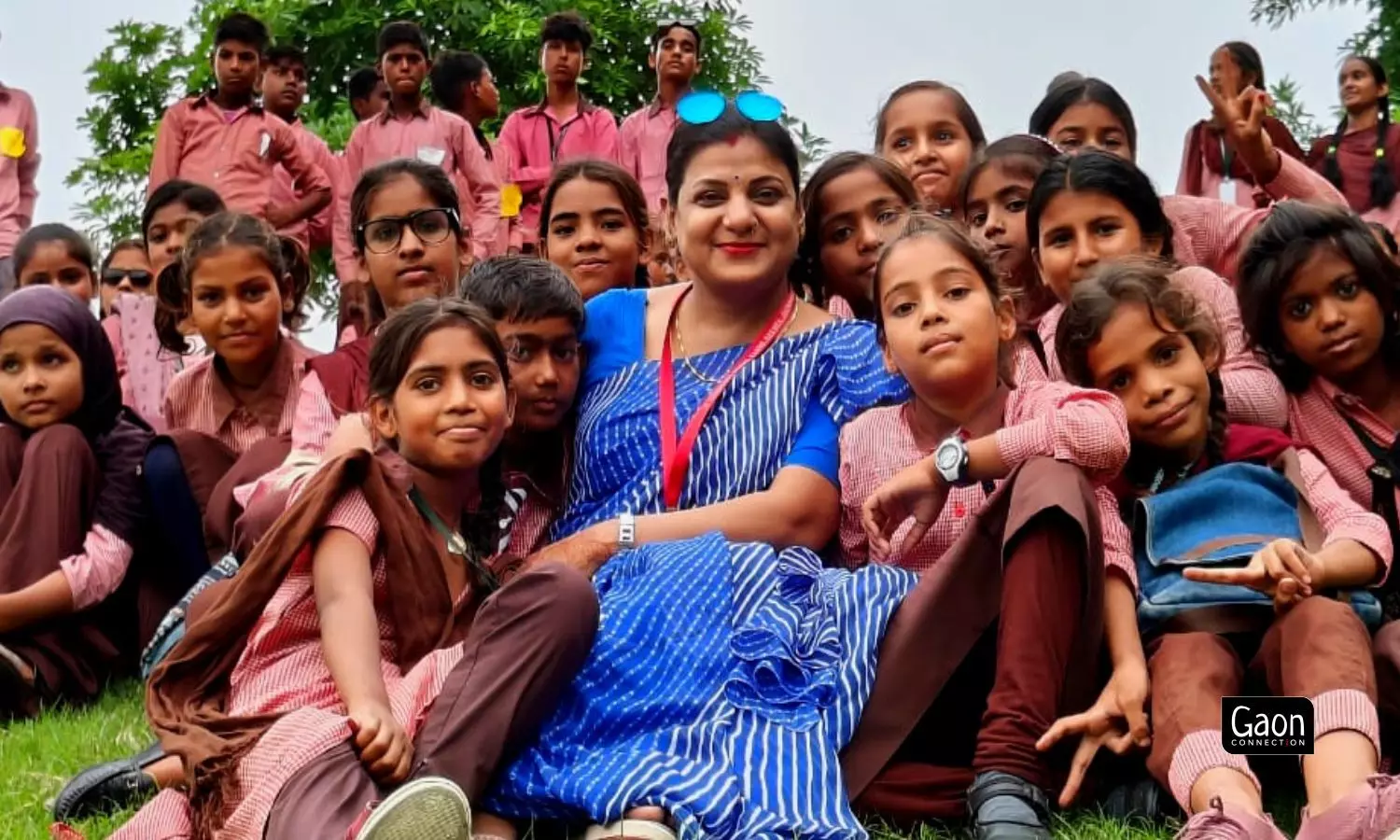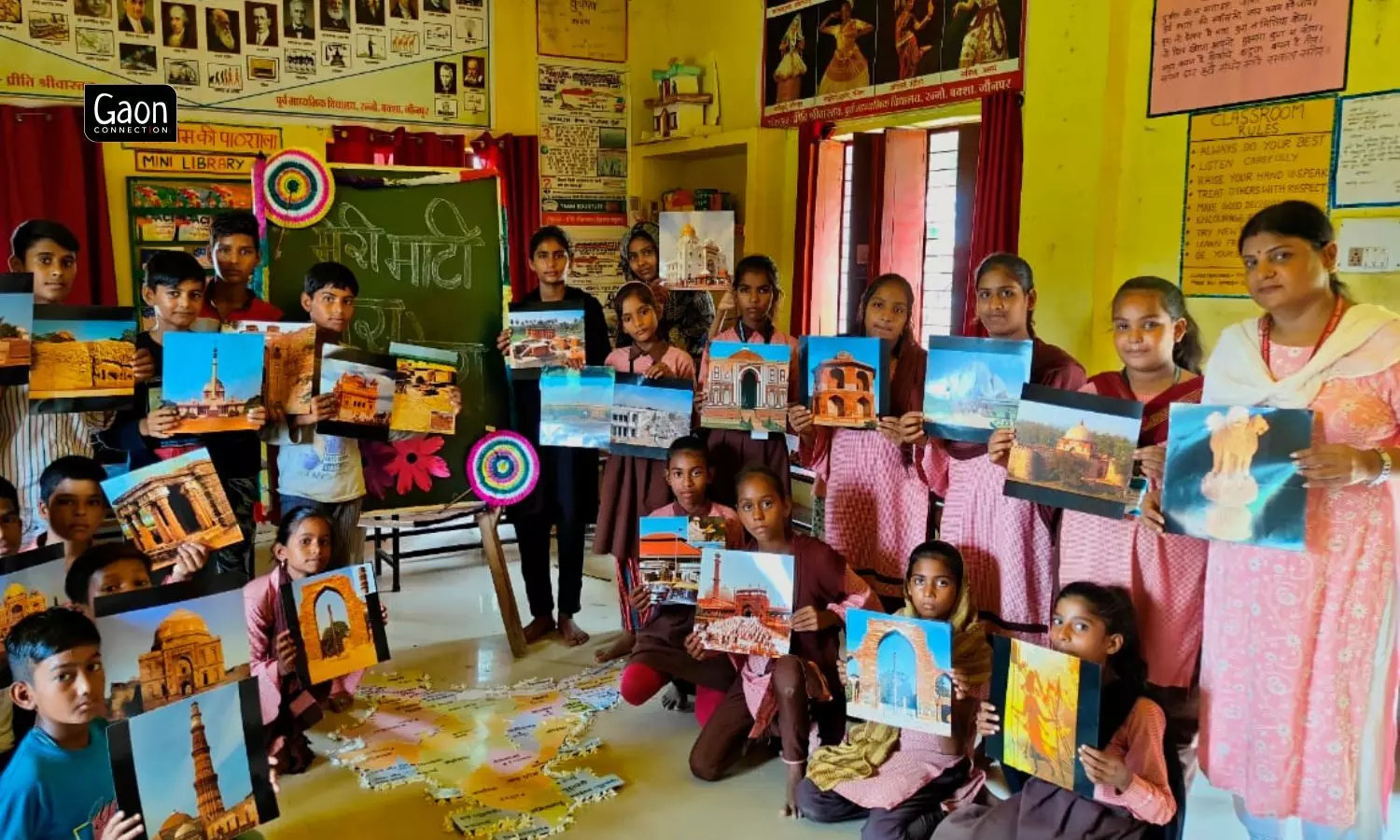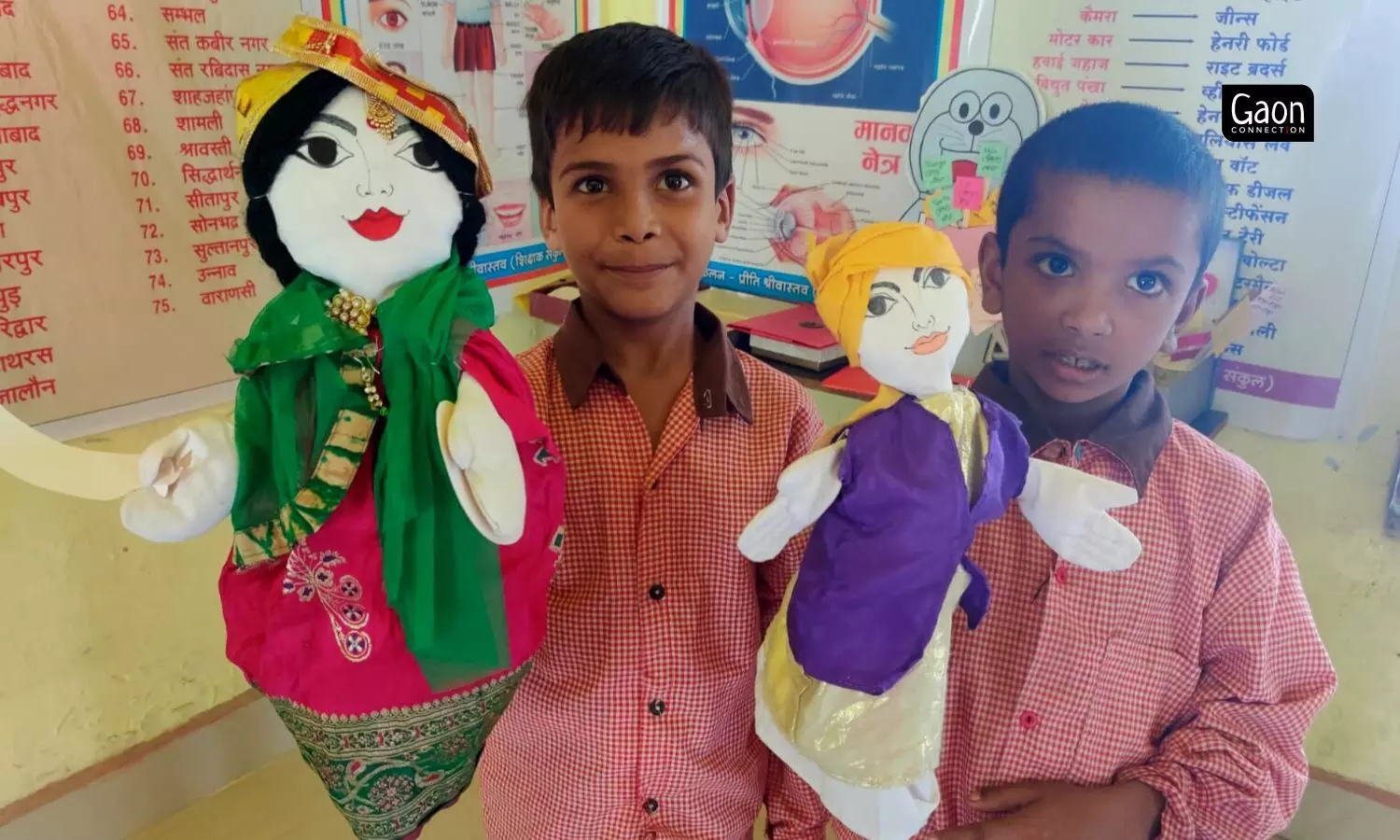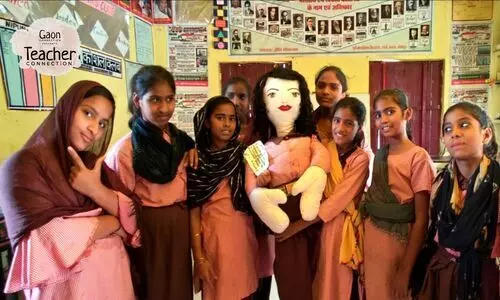Assistant teacher Priti Srivastava has a dream and a mission. It is to ensure every single child in Dakkhinpatti Ranno village in Jaunpur district, Uttar Pradesh, attends school. The 43-year-old teacher of the government Composite School in Ranno uses puppets and bluetooth to generate interest of rural children in school and education.
She has kept up with the times and uses technology to make her classes more interactive and attractive to her students.
“I embed a bluetooth speaker into a puppet and my students love it when the puppets speak. I dress the puppet in uniform, so that it encourages the students to be particular about coming to school in uniform too. And, I make sure I change the puppet’s costume depending on the subject I am teaching that day,” she told Gaon Connection.
Srivastava teaches Hindi, English, Sanskrit and Home Science to students of classes six, seven and eight at the government. She uses her laptop, the projector and the internet a lot to keep her students engaged.

Priti Srivastava has a dream to ensure every single child in the village Ranno attends school.
For example, on the days the children have Home Science, and Srivastava plans to teach them about cooking, the bluetooth-embedded puppet comes to class wearing an apron and chef’s hat. Her students eagerly wait for the puppet to visit their classroom.
Also Read: Teacher Speak: A 100 stories from rural classrooms, now in a book by Gaon Connection
“Dakkhinpatti Ranno village is Muslim dominated and many of the parents were not willing to send their children to the government school. Their kids studied at a madrasa. I took it upon myself to convince them that sending them to school was beneficial to their children,” Srivastava told Gaon Connection. She has been teaching at this school, located about 250 kilometres southeast of the state capital Lucknow, since 2013.
Thanks to the bluetooth-embedded puppets, the children of the village now eagerly go to school, and are full of stories when they return home. For instance, 40-year-old Alamdar Hussain who works in a local timber shop used to send his 13-year-old daughter to madrasa to study.
“My daughter watched her friends packing their bags and running off to the government school while she had to stay home. This made my daughter Eram sad,” he told Gaon Connection. He has now admitted his daughter to the government school where Srivastava teaches.
“I thought the madrasa she went to for religious education was enough. But when Priti ma’am impressed upon us the importance of sending Eram to school, I changed my mind and now she goes to school just like the other children, and is in class six,” said Hussain. Eram also goes to madrasa in the morning before going to school. Hussain said he would also send his other three children to school.
Also Read: Gaon Connection Founder Neelesh Misra Pens A Heartfelt Note On Teacher Connection’s Book Launch
Srivastava on her part, along with the other seven teachers in the school, ensure the premises are clean and comfortable for the children.
Other than using technology, Srivastava encourages her students to indulge in artistic activities at school.

Srivastava said it was her endeavour to ensure the children, both boys and girls learnt everything, irrespective of gender.
“We have a kala kaushal club in school where the students are taught sewing, dancing, singing and puppetry. I teach them bandhini tie and dye,” she said.
Srivastava said it was her endeavour to ensure the children, both boys and girls learnt everything, irrespective of gender. She did not want them growing up with stereotype notions. “I want my students to grow up sensitive and inclusive,” she added.

Other than using technology, Srivastava encourages her students to indulge in artistic activities too.
Baby is the school cook, who cooks students their midday meals. The 35-year-old’s daughter also studies in the same school in class six. “I did not want my daughter to live a life of penury. When Priti Ma’am told me how important it was to educate the children, I realised I had to support Shama in every way possible, and sending her to school was an important way of doing that,” she told Gaon Connection.




















